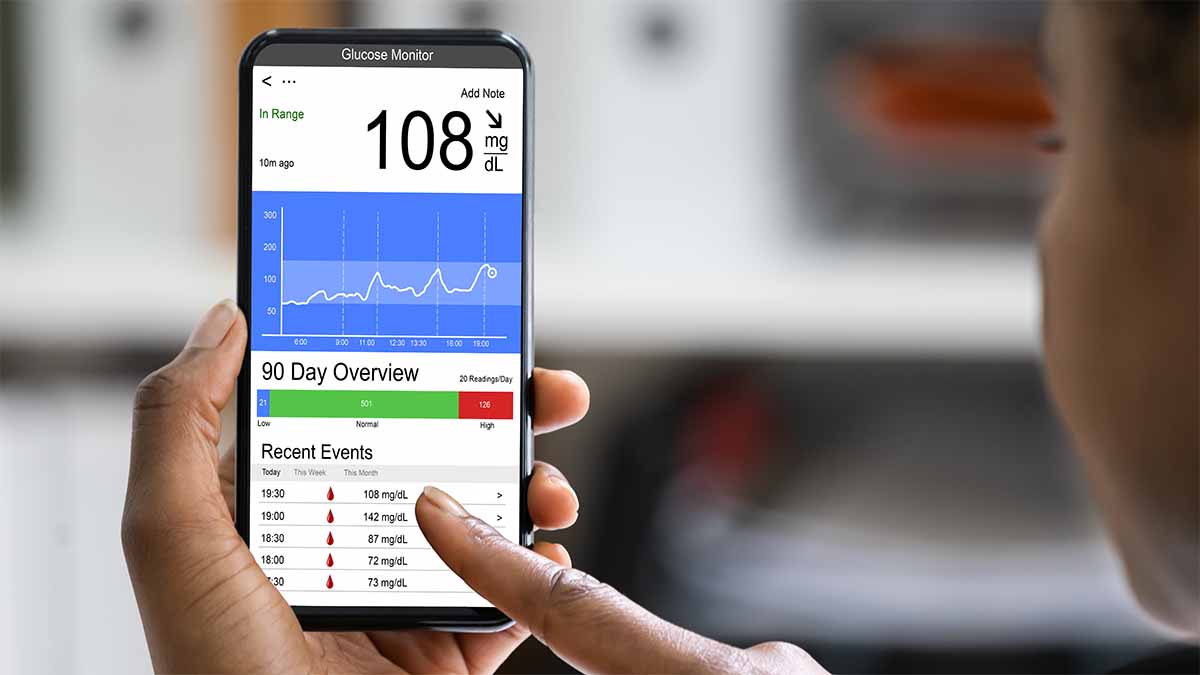
Closed-loop diabetes devices ‘life-changing’, but shouldn’t replace screening

New glucose-monitoring diabetes devices are creating “life-changing benefits”, but aren’t a silver bullet and should not replace screening, the charity Diabetes UK has said.
A study by the charity into the impact of hybrid closed-loop technology on how children and adults live with type 1 diabetes has concluded that the technology, while broadly bringing with it very positive results, is not a panacea solution.
In 2021, NHS England announced it was piloting the rollout of hybrid closed-loop technology, with the intention that this would give the NHS real-world evidence about the benefits of this potentially life-changing technology.
Hybrid closed-loop systems, also sometimes referred to as ‘an artificial pancreas’, allow a continuous glucose monitor (CGM) to ‘talk’ to an insulin pump. An algorithm then calculates the amount of background insulin required to keep blood sugars in target range, and automatically delivers this.
Some CGM systems also correct for high blood sugars by delivering extra insulin. But users still need to tell the device when they’re eating to receive insulin at mealtimes.
A conference run by the charity heard the result of research by Dr Tom Crabtree, a diabetes expert at University Hospitals of Derby and Burton NHS Trust.
He presented the findings of a study investigating whether age influences blood sugar levels when using hybrid closed loops, looking at data from 448 people between 17- and 78-years-old taking part in the pilot.
Dr Crabtree and his team tracked how participants’ HbA1c (a measure of average blood sugar levels) and the time they spent with their blood sugar levels in a target range (3.9-10mmol/mol) changed over five months.
HbA1c reduced by an average of 17.4mmol/mol (or 3.7%), and time in range increased by an average of 28.3%. Encouragingly, they also found these improvements happened across all ages, with little difference between age groups.
This, they argued, showed that age shouldn’t be a barrier to being offered a hybrid closed loop and the benefits to blood sugar levels could be huge.
Researchers asked 120 people from the pilot to complete a series of questionnaires to capture their experiences. This included information on their satisfaction with using hybrid closed loops, their quality of life, and questions tailored for each person.
More than 70% of people reported that using a hybrid closed loop improved not just their blood sugar levels but also their quality of life.
However, more than half (54%) also said they found the alarms (which go off when blood sugar levels are too high or too low) got in the way of their day-to-day lives. More than a fifth (22%) felt “overwhelmed” by dealing with the amount of information coming from the hybrid closed-loop system.
Diabetes UK argued these findings suggested that, although hybrid closed loops can have life-changing benefits and offer some freedom from the everyday burden of type 1 diabetes, they aren’t a magic solution. This kind of technology might not be for everyone, the charity warned.
Furthermore, the research highlighted an important issue around eye health and the new technology. People with diabetes are at a higher risk of the eye complication retinopathy. Keeping blood sugar levels within a target range is therefore really important to reduce this risk.
However, Diabetes UK highlighted that some research has suggested that rapidly improvements in blood sugar levels over a short period can make retinopathy worse. This led to some concerns about what effect a hybrid closed loop could have in this context.
The University Hospitals of Derby and Burton team therefore studied information from 62 people from the pilot to investigate this in more detail. Everyone was screened for retinopathy at the start of the study, and some were screened again three months later.
Of the 32 people who were followed up, after an average of nine months four people’s retinopathy had progressed but no one developed the severest form of retinopathy.
People whose retinopathy had progressed did not have much change in their HbA1c or time in range. The researchers also found that everyone whose retinopathy got worse had already had some retinopathy at the beginning.
Overall, the team’s findings agreed with previous findings on rapid improvements in blood sugar levels and retinopathy, with no added concern from using hybrid closed-loop systems.
However, the charity also said this meant it was “still vital for all people with diabetes to be offered retinopathy screening, to spot problems early and avoid preventable sight loss.”
Finally, the charity pointed to draft guidance published by the National Institute for Health and Care Excellence (NICE) earlier this year that recommended the use of hybrid closed-loop systems for some people with type 1 diabetes in England and Wales.
“NICE will be looking closely at data from the NHS pilot to make their decisions and we’re looking forward to hearing more on their final recommendations in the coming months,” Diabetes UK said.
“We’ll continue working to make sure that everyone with type 1 diabetes who could benefit can access the tech they deserve, as well as the right support to get the most out of it,” it added.
Stay connected with us on social media platform for instant update click here to join our Twitter, & Facebook
We are now on Telegram. Click here to join our channel (@TechiUpdate) and stay updated with the latest Technology headlines.
For all the latest Health News Click Here
For the latest news and updates, follow us on Google News.

